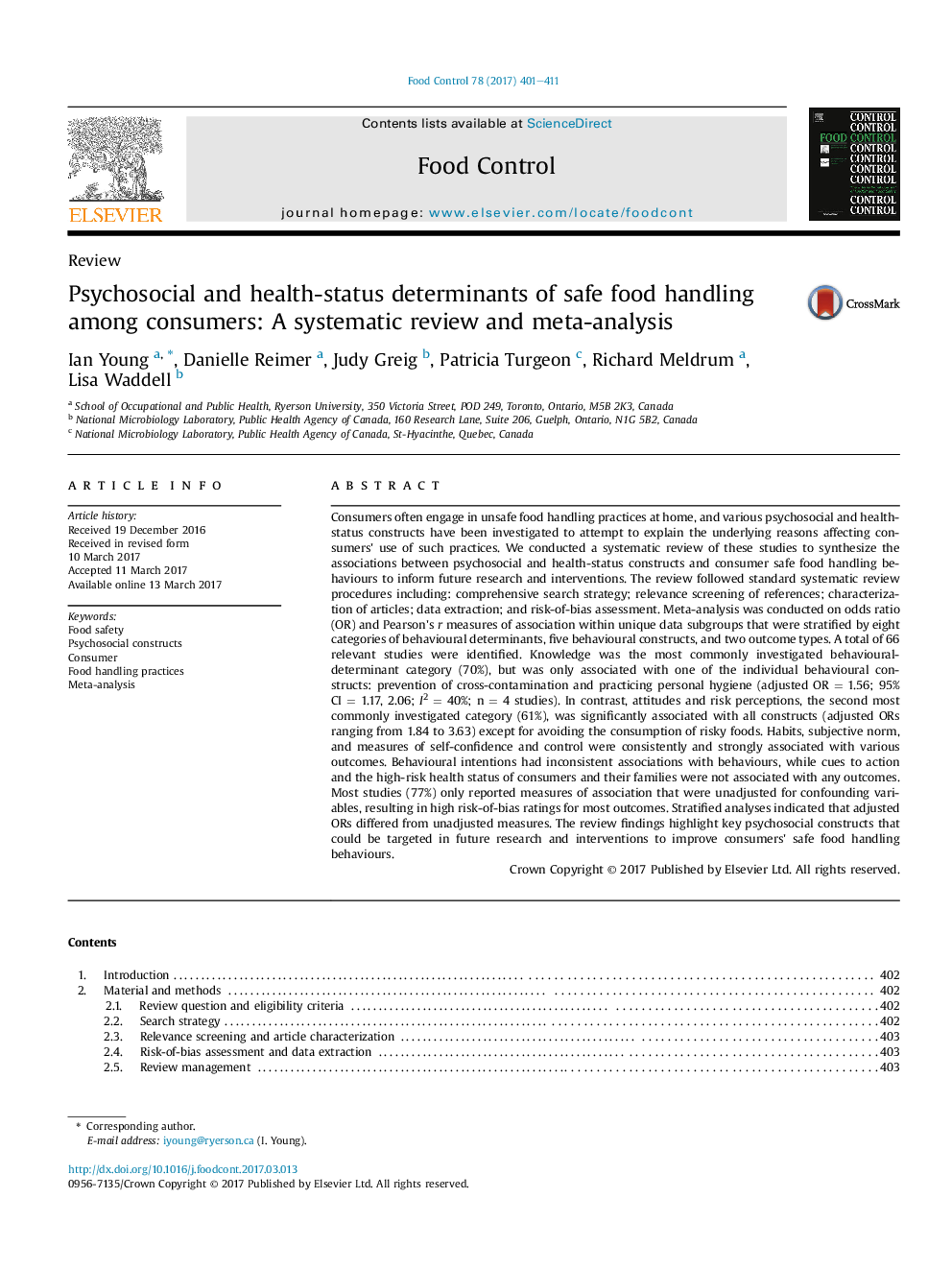| کد مقاله | کد نشریه | سال انتشار | مقاله انگلیسی | نسخه تمام متن |
|---|---|---|---|---|
| 5767531 | 1628386 | 2017 | 11 صفحه PDF | دانلود رایگان |
- Attitudes and risk perceptions were associated with several behaviour outcomes.
- Habits, subjective norm, and self-confidence/control were also associated.
- Knowledge was only associated with cross-contamination/personal hygiene behaviours.
- High-risk health status and cues to action had inconsistent findings.
Consumers often engage in unsafe food handling practices at home, and various psychosocial and health-status constructs have been investigated to attempt to explain the underlying reasons affecting consumers' use of such practices. We conducted a systematic review of these studies to synthesize the associations between psychosocial and health-status constructs and consumer safe food handling behaviours to inform future research and interventions. The review followed standard systematic review procedures including: comprehensive search strategy; relevance screening of references; characterization of articles; data extraction; and risk-of-bias assessment. Meta-analysis was conducted on odds ratio (OR) and Pearson's r measures of association within unique data subgroups that were stratified by eight categories of behavioural determinants, five behavioural constructs, and two outcome types. A total of 66 relevant studies were identified. Knowledge was the most commonly investigated behavioural-determinant category (70%), but was only associated with one of the individual behavioural constructs: prevention of cross-contamination and practicing personal hygiene (adjusted OR = 1.56; 95% CI = 1.17, 2.06; I2 = 40%; n = 4 studies). In contrast, attitudes and risk perceptions, the second most commonly investigated category (61%), was significantly associated with all constructs (adjusted ORs ranging from 1.84 to 3.63) except for avoiding the consumption of risky foods. Habits, subjective norm, and measures of self-confidence and control were consistently and strongly associated with various outcomes. Behavioural intentions had inconsistent associations with behaviours, while cues to action and the high-risk health status of consumers and their families were not associated with any outcomes. Most studies (77%) only reported measures of association that were unadjusted for confounding variables, resulting in high risk-of-bias ratings for most outcomes. Stratified analyses indicated that adjusted ORs differed from unadjusted measures. The review findings highlight key psychosocial constructs that could be targeted in future research and interventions to improve consumers' safe food handling behaviours.
Journal: Food Control - Volume 78, August 2017, Pages 401-411
